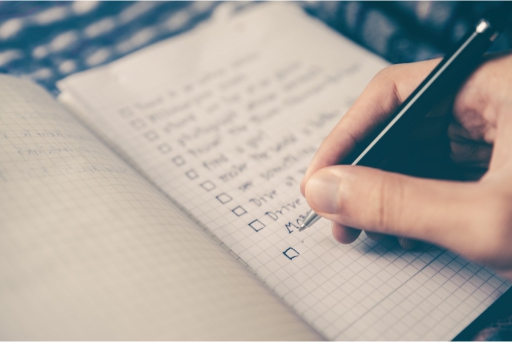
Self-care encompasses every activity that helps to sustain you physically, mentally, and emotionally. Creating a self-care checklist will help you keep track of these activities.
In this article, you will learn the meaning of self-care and the types of self-care. You will also learn what a self-care checklist is, its benefits and how to create a self-care checklist that works for you.
What is Self-care?
Self-care is a term for everything you do to take care of yourself — from eating healthily to taking recommended medication, to going on a vacation. It includes your diet choices, exercise, sleep, alone time, and leisure activities.
The media sometimes gives an idea that self-care means doing everything that makes you happy, even if it’s bad for you. But, in reality, self-care is not the overindulgent propaganda that is popular nowadays.
It’s not binge-eating junk food, binge-watching your favorite TV show while abandoning work, or spending outrageous amounts on clothes or shoes or outings you can’t afford.
Proper self-care is moderation in things that make you happy as well as participating in other activities that would guarantee your well-being in the long run, physically, mentally and emotionally.
Types of Self-care
Since there are different aspects to a person’s life, there are different types of self-care that solely caters to each of those aspects. Here are 6 types of self-care:
1. Physical self-care
This type of self-care focuses on activities that are meant to improve your physical health and well-being. Physical self-care includes things like exercise, good sleep, and a proper diet.
2. Emotional self-care
Emotional self-care involves activities that help you process, reflect, and connect with your emotions. Activities like therapy, journal-keeping, mindfulness, and creating art are forms of emotional self-care.
3. Practical self-care
This type of self-care deals with fulfilling core activities in your life that helps things run smoothly and prevents stressful scenarios. Practical self-care includes things like creating a budget, investing wisely, and organizing your desk or closet.
4. Social self-care
Social self-care deals with activities that improve your relationships with people in your life. Activities such as friendly dates, courtesy calls and visits, and movie nights are forms of social self-care.
5. Mental self-care
This is the facet of self-care that stimulates your intellect, sharpens your mind, and strengthens your mental health.
6. Spiritual self-care
Spiritual self-care involves nurturing your spirit and connecting with a higher power or energy. It is not necessarily religious, but it could be for religious people. Activities like meditation, self-reflection, prayer, or visiting a place of worship are under spiritual self-care.
What is a Self-care Checklist?
A self-care checklist is an outline of all activities — ongoing or intended — that help you reduce stress, live healthier, and improve your overall well-being. A self-care checklist is personal and varies from person to person, depending on the type of self-care a person needs or is focusing on.
A self-care checklist could be written as a daily, weekly, or monthly checklist. Contrary to what you might find on the internet, a self-care checklist is not one-size-fits-all. It should be specially tailored to each individual’s need to motivate them to work with it. This makes it necessary for you to learn how to create a self-care checklist that works for you.
How to Create a Self-care Checklist
The most important thing to note when creating a checklist is that you are creating it for yourself alone. Only what you want and what you need have to be on that list.
It is also necessary to note that a self-care checklist doesn’t have to be static. You can rewrite it and reorganize it to suit you, based on your needs at each point in time. Here are the things you need to do to create a self-care checklist:
- Start by noting down what has worked for you in the past; something that has directly improved your well-being, whether it was physical, emotional, or mental self-care. This helps you get a sense of where you are coming from, and what you need moving forward.
- Take note of all your self-care needs — physical, mental, emotional, social, practical, and spiritual. Write down all you do in each of those aspects of self-care, and whether you need to do more, or readjust some of them. You need to carefully evaluate each one and note down which areas you’re lacking and which areas you want to make changes to.
- Consider the free time that you have. Will you be able to keep up with your self-care checklist? Adjust your self-care activities to your free time. Note that every minute of your time cannot be busy, else you will burn out. You need some personal time just to relax and unwind by yourself.
- Take your finances into account. Can you afford the things you intend to do? Do you have a budget in place for them? If the expense of those activities will increase your stress rather than ease your tension, then you should reconsider them. However, there is nothing wrong with paying for things that work for you.
- If your self-care checklist is getting too full, then you might need to take a step back and reassign some activities for later. Trying to do them all could have the opposite effect on you.
Instead of indulging in those activities with the intent to improve your wellness, it becomes a race to complete each activity before the stipulated time frame runs out, stressing you out in the end.
Final Words
As an industrious business owner or C-Suite executive, it is easy to get swamped with work and lose value for things as significant as self-care. However, creating a self-care checklist will not only help improve your overall well-being but also measure your progress and self-development.
